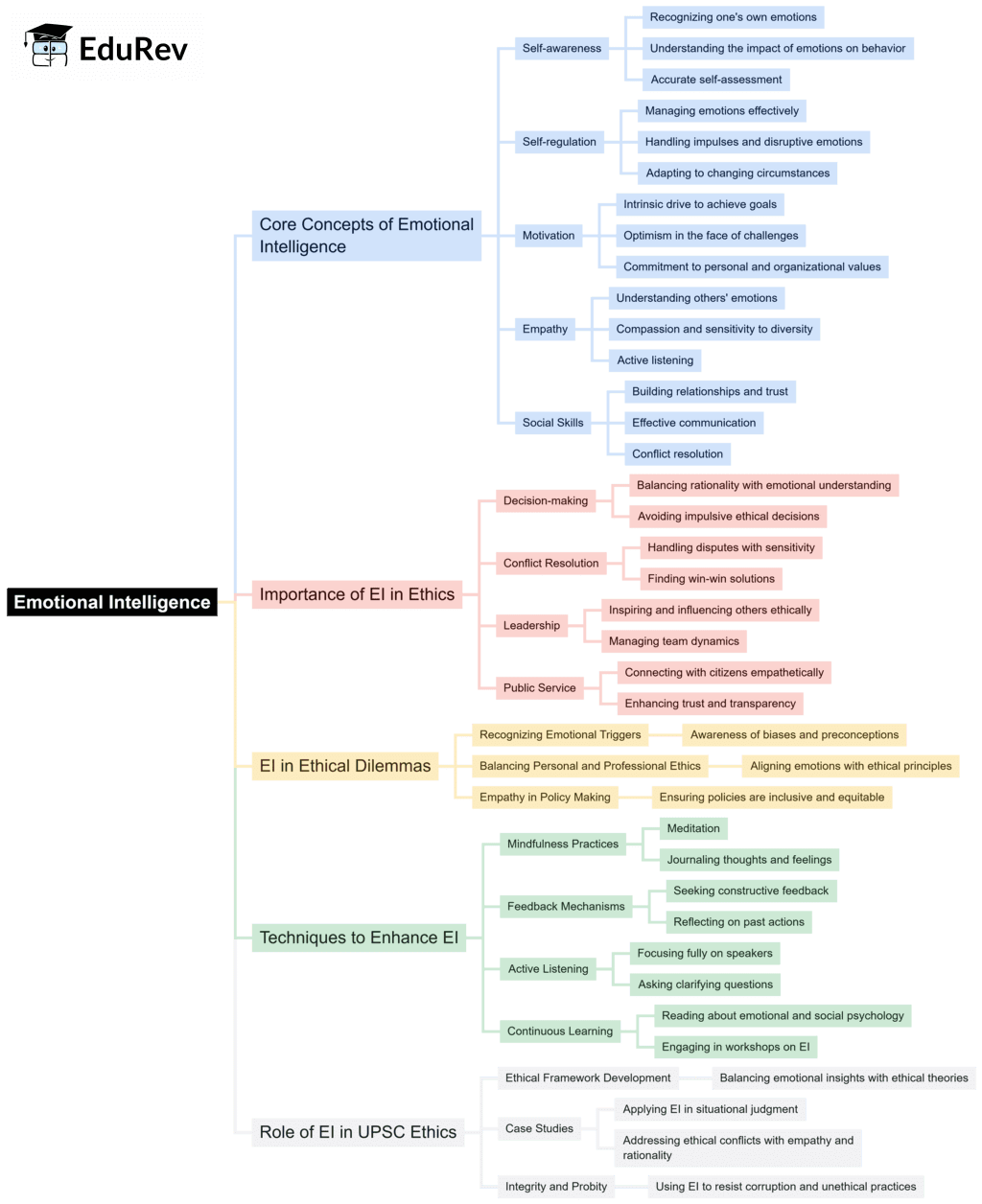UPSC Exam > UPSC Notes > UPSC Mains: Ethics, Integrity & Aptitude > Mind Map: Emotional Intelligence
Mind Map: Emotional Intelligence | UPSC Mains: Ethics, Integrity & Aptitude PDF Download

The document Mind Map: Emotional Intelligence | UPSC Mains: Ethics, Integrity & Aptitude is a part of the UPSC Course UPSC Mains: Ethics, Integrity & Aptitude.
All you need of UPSC at this link: UPSC
|
78 videos|140 docs
|
FAQs on Mind Map: Emotional Intelligence - UPSC Mains: Ethics, Integrity & Aptitude
| 1. What is emotional intelligence and why is it important for UPSC aspirants? |  |
Ans. Emotional intelligence (EI) refers to the ability to understand, manage, and express one's emotions, as well as to recognize and influence the emotions of others. For UPSC aspirants, EI is crucial as it enhances interpersonal communication, decision-making, and stress management, which are vital skills for effective public service and leadership roles.
| 2. How can emotional intelligence be developed among UPSC candidates? |  |
Ans. Emotional intelligence can be developed through self-awareness practices, such as journaling and reflection, engaging in active listening, seeking feedback from peers, participating in workshops, and practicing empathy in daily interactions. These activities help candidates better understand their emotions and improve their ability to connect with others.
| 3. What are the key components of emotional intelligence relevant to UPSC exams? |  |
Ans. The key components of emotional intelligence include self-awareness, self-regulation, motivation, empathy, and social skills. These components help candidates manage their emotions, stay motivated during preparation, understand the perspectives of others, and collaborate effectively, which are essential for success in the UPSC exam and subsequent career in civil services.
| 4. How does emotional intelligence impact leadership in civil services? |  |
Ans. Emotional intelligence significantly impacts leadership in civil services by enabling leaders to build strong relationships, motivate their teams, and resolve conflicts effectively. Leaders with high EI can navigate complex social dynamics, understand the needs of the public, and make empathetic decisions, ultimately leading to better governance and public trust.
| 5. What role does emotional intelligence play in stress management for UPSC aspirants? |  |
Ans. Emotional intelligence plays a vital role in stress management by helping aspirants recognize their emotional triggers and responses. By practicing self-regulation and mindfulness techniques, candidates can better cope with the pressures of exam preparation, maintain a positive outlook, and enhance their overall well-being, thereby improving their performance in the UPSC exam.
Related Searches
















